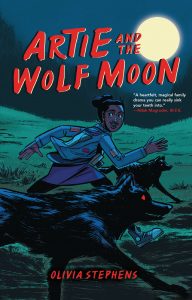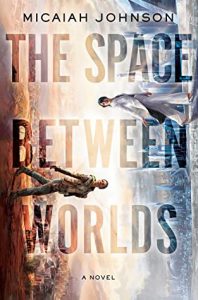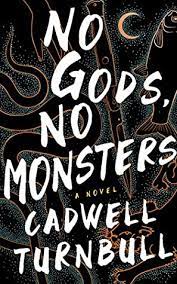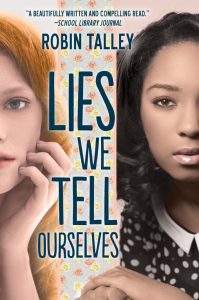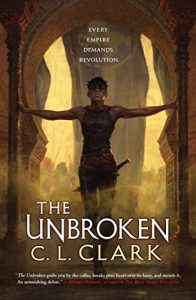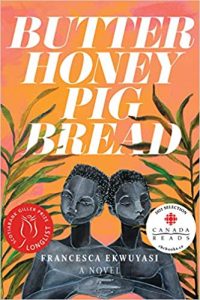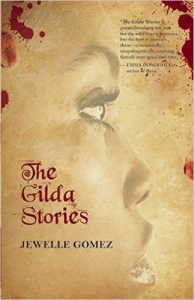Amazon Affiliate Link | Bookshop.org Affiliate Link
Artie and the Wolf Moon is a graphic novel about middle schooler Artie, a budding photographer who discovers that her mom is a werewolf. Artie is a lonely kid. She’s one of the few students of color at her school, and she’s bullied by some of her classmates. When she shows signs that she, too, is a werewolf, her mom takes her to a whole community of wolves.
The book follows Artie’s development as a werewolf, learning her history both of her family and of werewolves in the United States, as well as her personal growth as she gains confidence, navigates new non-werewolf friendships, and falls blushing and stammering into a romance with her new friend Maya. It’s a tightly woven narrative with strong plot and character elements throughout, and it explores themes of community, grief, and growing up.
A good graphic novel strikes just the right balance between too much character content and too much action, and I thought Artie and the Wolf Moon absolutely nailed it. Artie stood out as an impulsive, stubborn, curious girl. She discovers the werewolves’ world as readers do. Scenes with Maya’s family and community overrun with a sense of acceptance and community. I felt how much happier Artie was, and werewolf shifting and lore felt like family activities–especially the way Artie was included even before she learned to control her shifting. There was a sense of adventure and even peril, but those felt secondary to a story about belonging.
The artwork suited the story well. The center of the story is Artie and her newfound community, and the images reflect that. Stephens creates simple backgrounds, setting the stage but focusing on the characters. I found it effective, especially with creating atmosphere. Werewolf-ness was represented by bright red lines, while vampires were jagged shadows. It gave the supernatural elements an otherworldly feeling.
This is a coming-of-age story, and Artie and Maya’s romance has the feeling of a first love: hesitant and shy and marked by a lot of blushing, and it develops over quiet moments they share. Their relationship is defined by this shared time and closeness. When Maya chooses to spend time with Artie alone, they climb a tree together in the sweetest single panel I have seen, possibly ever. It feels sincere, tender, and just right for a story about identity and belonging. It was soft and lovely. This is exactly the content I came here for.
The werewolves’ story ties into Black history in the United States. Mine is an outsider’s perspective here, but it’s an important part of the book and excluding it from the review would be disingenuous. The Mother Werewolf fled enslavement, and with Black werewolves and white vampires, generational conflicts between the two parallel racial violence and discrimination. One incident that stands out involves vampires forcing a werewolf family out of town. This is a scene that, portrayed in films, would have ensured one of the white characters stepped into an especially bright patch to be given identity, a particularly harsh contrast given how films’ lighting already favors lighter-skinned actors. Stephens chose to portray this scene without making the vampires more than blurred phantoms, no personhood for those mired in hate. When historical elements of violent discrimination were included, they kept the narrative centered on Black characters.
Artie and the Wolf Moon is a standout. Plot and exploration of this new world complement character growth, with each aspect given space to breathe. I appreciated moments when Artie was allowed to be frustrated or annoyed, not because the story needed it but because that’s part of growing up; I appreciated moments where characters are thrust into situations they’re not ready for because the story demands more. Supernatural elements are grounded in a palpable community setting. I enjoyed so much about reading this book.
Trigger warnings: the book includes instances of racism and bullying

